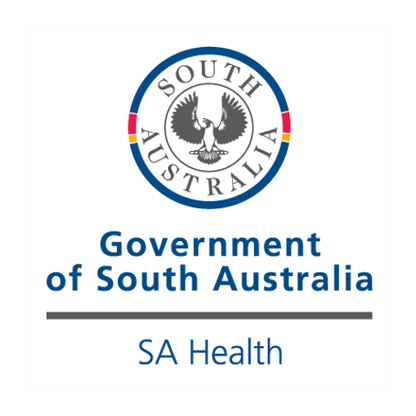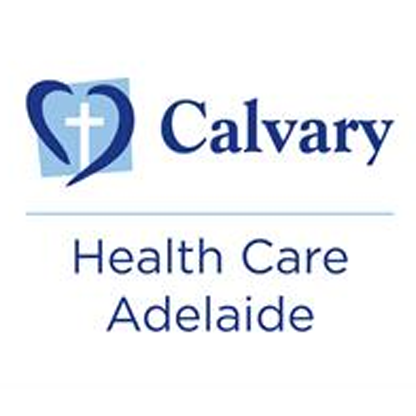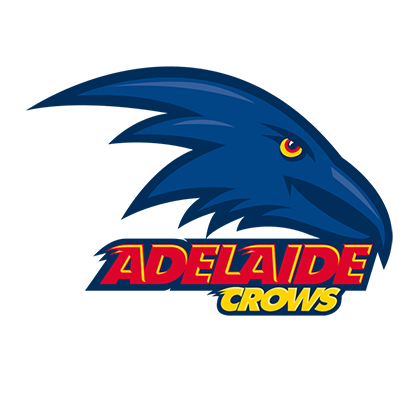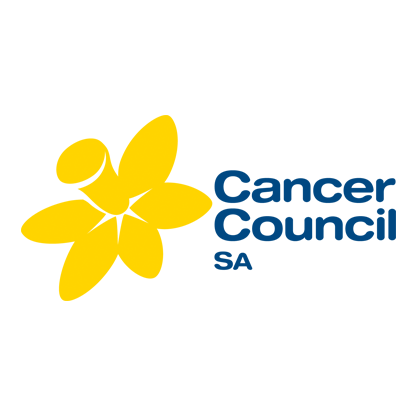You're viewing degree information for Australian students
You're considered an Australian student if you are any of the following:
- Australian or New Zealand Citizen
- Australian Permanent Resident (including Humanitarian Visa holders)
Discipline info for Australian students
Interested in Nutrition and Food Sciences?
Be at the forefront of innovation in the food and nutrition industries, with opportunities to embark on health, scientific and advisory roles.
Food plays an enormous role in our health and wellbeing. Studying nutrition and food sciences will prepare you for an unstoppable career promoting healthy diets and lifestyles, driving innovation and change in global sustainable food production, and making a difference in how we see, approach, and nurture health through nutrition.
The Bachelor of Nutrition and Food Sciences will give you the skills to educate and innovate with food. You will develop a strong understanding of both nutrition and food science topics, and gain the skills to conduct research into enhanced wellbeing, develop innovative and sustainable foods, and more. Choose from two specialised stream options to tailor your study to your career goals, and benefit from field trips and industry engagement during your studies.
For those interested in exercise and nutrition, enhance your career prospects with double degree options within the complimentary fields of Human Movement or Exercise and Sports Science.
Key features
- Be at the forefront of innovation and implementation in food and nutrition, with opportunities to go into healthcare, scientific, and advisory roles.
- Study at the No.1 university in South Australia for graduate careers.1
- Benefit from UniSA's strong links with the food and nutrition industry.
- Join a university with well-above world-class research in nutrition and dietetics.2
- Expand your career options with double degrees in two highly complementary fields – Human Movement or Exercise and Sports Science.
- Complete placements across a range of industry settings, including schools and elite sporting clubs, depending on your degree combination.
- Learn from Australia’s leading nutrition experts and exercise scientists in state-of-the-art facilities and laboratories.
1ComparED (QILT) Graduate Outcomes Survey 2021-23– Full-time Employment Indicator (Domestic Undergraduate). SA public universities. 22018 Excellence in Research for Australia (ERA).
UniSA is an unstoppable university for unstoppable people. As one of the World’s Top Young Universities1, we’ll ensure you get the experience your future profession demands so it’ll feel like you’re studying one minute and in a career the next.
As Australia's future health professionals, you’ll develop skills to prepare for a career in the health industry, and to confidently work across multi-disciplinary healthcare teams. Our nutrition and food science degrees have industry knowledge embedded into them in a number of different ways. You'll benefit from placements, hear from industry guest speakers, attend field trips or work on industry projects.
You’ll be taught by industry professionals and researchers including dieticians, nutritionists, exercise scientists and high performance coaches, depending on your chosen degree.
You’ll use the latest technologies and learn in our dedicated nutrition and food sciences hub, which includes a $1 million commercial kitchen, sensory laboratory (one of only a few in Australia), and microbiology laboratory.
1Ranked #43, 2024 THE Young University Rankings.
Short programs
Are you after a career change or looking to upgrade your existing skills? Or perhaps you just have an interest in a particular subject area and want to further your experience, skills and knowledge. We offer a suite of short programs that will allow you to build your knowledge and skill set.
Designed in collaboration with expert academics, program content is industry-relevant and up-to-date. Short programs for nutrition and food sciences include the Professional Certificate in Clinical Education.
World-class partners for a world-class university
We are a globally connected university with over 2,500 industry and professional relationships that support student internships, research and community engagement.
Nutrition is high on Australia’s health and wellness agenda. In Australia, the nutrition profession is expected to grow by 7.2% by November 2026.1
Your unstoppable career in nutrition and food sciences could lead you to exciting jobs such as:
- Sports and fitness nutritionist: improve the health and performance of athletes.
- Community nutritionist: influence attitude changes toward nutrition and health; provide advice, guidance and support to the community.
- Health promotion officer: plan and coordinate health promotion programs for various community groups.
- Research scientist: broaden scientific understanding by planning, conducting and analysing laboratory-based investigations, experiments and trials.
- Food policy advisor: communicate health and nutrition advice to the public.
- Food safety advisor: conduct food and safety reviews and monitor procedures to ensure standards are met.
- Product development manager: develop new and innovative products to meet strategic business objectives.
- Flavour technologist: sample products and conduct experiments to alter the ingredients in food and beverages to make it taste better, replicate a taste, or develop a new taste.
Upon graduation from a Master of Teaching (Secondary) and successful registration with the Teachers Registration Board, graduates can also teach Nutrition up to Year 12 and Junior Science up to Year 10. Visit the How do I become a secondary nutrition teacher webpage for more information).
1Australian Government National Skills Commission Employment Projections 2021.
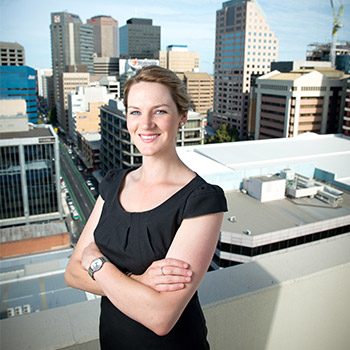
Global networks
As a globally connected university, our staff and students come from over 90 countries. We also have more than 2,500 industry and professional relationships that support student internships, research and community engagement.
Industry facts
Study at the new Adelaide University in 2026
The University of Adelaide and the University of South Australia are combining their strengths to create a new university for the future, Adelaide University, opening in January 2026.
From 4 August 2025, the University of Adelaide and University of South Australia will no longer be accepting applications for new students.
Ask UniSA
-
How do I apply?
The way you apply for UniSA will depend on the undergraduate or postgraduate coursework degree you're interested in studying.
The majority of applications are made via the South Australian Tertiary Admissions Centre (SATAC). Check out more information on the SATAC website and follow the appropriate process for your degree of interest.
There are a small number of degrees that you need to apply for through direct application processes. The process you need to follow will be listed on the 'How to Apply' section of the degree homepage, but you'll also be taken to where you need to go if you hit the 'apply' button.
If you are interested in studying one of our 100% online degrees you'll need to apply directly to UniSA Online.
You can find more information about the application processes for UniSA on our How to Apply webpage.
If you're more interested in applying for a postgraduate degree by research, check out and follow the information in our step by step guide to applying. -
Is there a closing date for applications?
Applications for all degrees will close ahead of study commencing, but the timelines may vary for undergraduate and postgraduate degrees.
Undergraduate
The deadline to apply to study a degree at UniSA for semester one (commencing late February) and be guaranteed equal consideration is generally in very late November or early December. While you may be able to apply after this date, you are not guaranteed to be considered equally with other applicants and your application may not be assessed in time for the main round of offers. More competitive degrees may not make any offers after the main offer round. Find more information on the Key Dates section of the SATAC website, but you can also call the Future Student Enquiries team for more information on 08 8302 376.
Postgraduate
Many postgraduate by coursework degrees do not have set closing dates. The exceptions are highly competitive degrees, so it is best to check – either on the degree homepage on the SATAC website or by checking with our Future Student Enquiries team.
As most postgraduate applications are assessed as they are submitted and offers are continuous, there are no set closing dates for applications. Degrees can be filled and closed with little notice so it is best to apply as soon as possible to avoid missing out on a place. For more information, please contact our Future Student Enquires team on (08) 8302 2376 or submit an enquiry.
-
What credit can I receive for previous studies?
You may be eligible for credit or advanced standing for your chosen UniSA degree based on your previous studies, if they are in a related area and completed within a certain timeframe. Receiving credit or RPL will reduce the number of courses you undertake within the degree, and may also reduce the overall duration of your degree. You can read more about our pre-existing credit agreements through our online Credit Assessor. If you have related industry experience, you may also be eligible to receive recognised prior learning (RPL) for this experience. Credit and RPL is assessed by the Program Director once you've received an offer, and you apply through UniSA's current student experts, Campus Central.
-
Can I speak to someone regarding my study options?
Future Student Enquiries welcomes the opportunity to meet with you to discuss your study options at UniSA. We can discuss degree information, entry requirements and pathways, applications, general career outcomes and student life, so you have the information to make the best study decision for your future. Head to our Book an Appointment webpage to find a date and time to speak with us, and take your next steps on journey to university study.
What others are saying
Why study at UniSA?
As one of the most innovative universities in Australia and Asia, there are many reasons to study with us. Here are just three:
Accessible, helpful and flexible
We have six campuses, a 24/7 online learning environment, and we offer flexible study options like online and evening courses.
Graduate success
UniSA is South Australia's number one university for graduate careers.*
*ComparED (QILT) Graduate Outcomes Survey 2019-21 – Full-time Employment Indicator (Undergraduate). SA public universities.
A five star university
Five stars for research, employability, teaching, facilities, internationalisation, inclusiveness and innovation*
*2023 QS Stars Ratings





